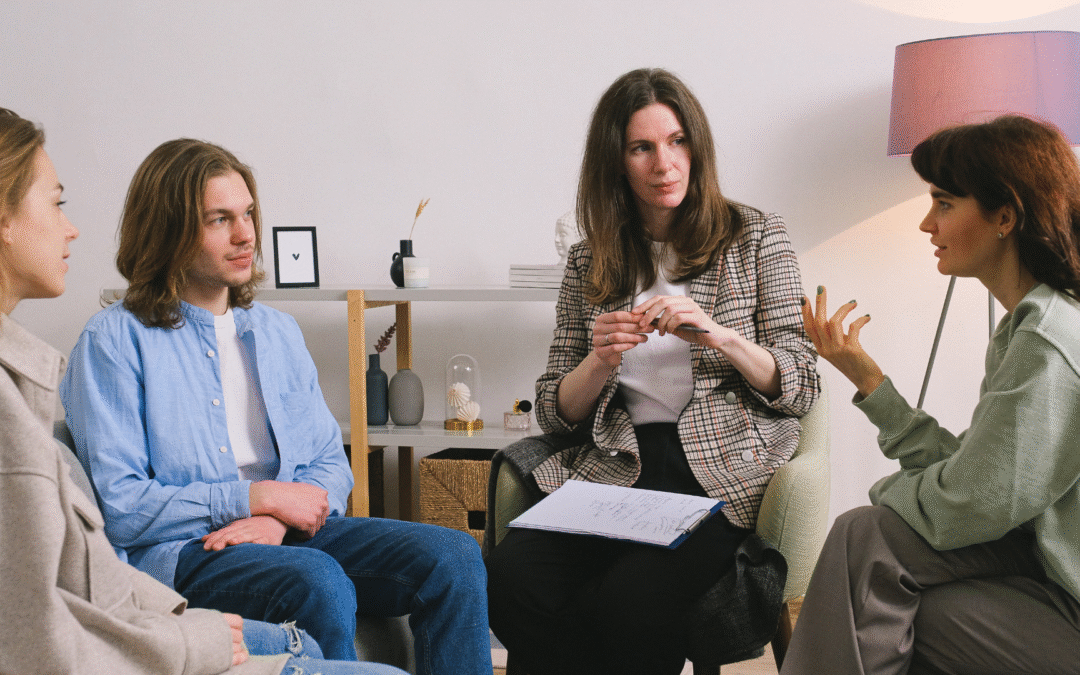Flexibility that Fits Real Life
Evening IOPs are designed for individuals who need structured support but cannot step away from work, school, or family responsibilities during the day. At be Collaborative, our evening program runs three evenings a week allowing clients to receive focused treatment while still maintaining their regular commitments. This balance is particularly beneficial for adults transitioning from higher levels of care or for those who find weekly outpatient sessions insufficient. By scheduling treatment outside of standard work or class hours, evening IOPs eliminate a major barrier to recovery: time. Clients no longer have to choose between their health and their responsibilities. Instead, they can commit to both, weaving recovery into their lives without losing progress in their personal, professional, or academic pursuits.
Practicing Skills Beyond the Therapy Room
One of the greatest strengths of an evening IOP is the opportunity to immediately apply new strategies in daily life. During each session, clients learn evidence-based coping skills drawn from Acceptance and Commitment Therapy (ACT), Cognitive Behavioral Therapy (CBT), and Dialectical Behavior Therapy (DBT). Between sessions, they are encouraged to practice these techniques in real situations, whether it be at work, school, or at home with family. This cycle of learning and application creates a powerful feedback loop that accelerates progress. For instance, clients may experiment with mindful eating practices during meals or challenge harmful thought patterns as they arise. When they return to the program, they have a space to reflect, problem-solve, and receive encouragement from both clinicians and peers. This structure helps skills become ingrained rather than abstract, leading to lasting change outside of the therapy setting.
Building a Supportive Community
Recovery can feel isolating, especially when guilt, shame, or anxiety around food and body image create barriers to connection. Evening IOPs provide a built-in community of peers who truly understand the challenges of recovery. At be Collaborative, clients engage in group sessions, expressive therapies, and nutrition support, all alongside individuals facing similar struggles. Sharing experiences fosters empathy, validation, and encouragement, helping participants feel less alone. Group members celebrate small victories together and offer insight when setbacks occur. This peer-driven encouragement is a powerful complement to clinical guidance, reminding clients that healing does not have to be a solitary journey. A sense of belonging often motivates participants to remain engaged with treatment and strengthens their resilience in daily life.
Key Benefits of Our Evening IOP
Evening IOPs combine evidence-based therapies, holistic practices, and peer support in a flexible format. At be Collaborative, participants benefit from:
- Structured treatment three evenings per week, ideal for balancing work or school.
- Immediate opportunities to practice skills in real-world settings.
- A supportive community of peers who are also recovering.
- Access to multidisciplinary experts, including therapists, dietitians, and psychiatrists.
- Cost-effective care with insurance coverage through BCBS and UHC.
These benefits demonstrate why evening IOPs are an effective option for individuals needing more than outpatient therapy but less than full-day treatment.
Conclusion
At be Collaborative Care, our Evening Intensive Outpatient Program offers a supportive environment while maintaining daily responsibilities. By offering flexibility, real-world skill practice, supportive community, and accessible care, evening IOPs empower individuals to prioritize healing without putting their lives on hold. For adults who need structure but cannot commit to daytime treatment, our evening program provides a timely, practical, and compassionate solution. Recovery is possible, and with the right support, it can fit into every stage of life.

